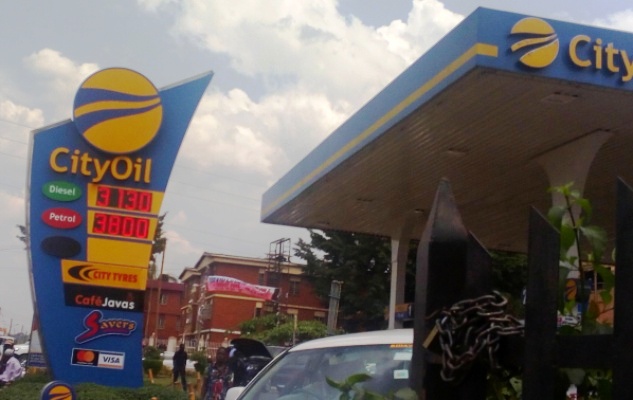Fuel pump prices are increasing in Uganda, a development that has seen transport fares go up in some parts of the country.
Currently, a litre of petrol in Kampala is averaging Shs3, 800, up from an average of Shs3, 600 a fortnight ago.
In Western parts of Uganda, a litre of Petro has already hit Shs4, 000. Diesel prices are also slowly going up.
Government has attributed the increase to the rise in international oil prices and the depreciation of the Uganda Shilling against the US dollar.
It is worth noting that at the start of this year, the Shilling weakened against the dollar, depreciating to sell between Shs3,650 and Shs3,660, implying that unlike before, one needs more Shillings to buy dollars/import.
At the start of this month, oil prices also hit the $70 per barrel mark, up from December’s $64.
In an exclusive interview with Business Focus, Yusuf Masaba, a Communication Specialist at Ministry of Energy and Mineral Development revealed that there’s no fuel shortage in the country as it is being portrayed by some people.
“We are in a very health and stable condition,” Masaba said, adding: “The current increase in pump prices is as a result of a number of factors that are considered in determining fuel prices. The global Platts prices have increased and this definitely has an impact on our fuel imports. This coupled to the fact that the shilling has not been performing quite well against the dollar further explains why pump prices have risen.”
Oil dealers are also advancing the same reasons as government.
“All oil transactions are paid in dollars. The stronger the dollar, the higher the pump prices will be for the final consumer,” Peter Ochieng, the Hash Energy Regional General Manager is quoted as saying by The Daily Monitor.
Unscrupulous Dealers
However, unscrupulous dealers may take advantage of weaker consumer rights in Uganda to hike fuel prices. This is because an increase in international prices of US$6 per barrel in a space of less than a month can’t quickly cause an impact on local prices.
Similarly, the sharp depreciation of the Uganda Shilling against the US dollar started at the beginning of this year, meaning that the current hike can’t be hinged on the exchange rate.
Oil dealers have also regularly said that it takes over three months for new international oil prices to reflect in final price at the pump.
It therefore remains unclear why oil prices are rising in Uganda yet they remain unchanged in other East African countries. For example, reports indicate that fuel prices are stable in Rwanda despite the fact that most of her imported goods go through Uganda.
Responding to the issue of unscrupulous dealers, Masaba said: “…We cannot rule out having some unscrupulous elements in the industry that may take that advantage [of Shilling depreciation and rise in international oil prices] to hike the prices. But this is partly as a result of having a free market economy where demand and supply are big determinants of price.”
According to records at the Ministry of Energy, Uganda consumes about 5.4m litres of petroleum products daily.
Effect On Economy
The rising fuel prices may result into a rise in commodity prices and ultimately trigger inflation.
However, Masaba says “the slight increase has not had any major effect on the business that run on fuel since there has been a steady supply of Electricity that most heavy industries in Uganda rely on.”
“The slight increase may only be felt by the small car owners, but there is no need for alarm since this will definitely stabilize once the international market prices drop and the shilling improves its trading against the dollar,” he said, adding that the Fuel Reserves owned by Government are meant to help during a national crisis which ‘we do not have’ now.







I need to start a petrol station so I need all machines for completing my process oba how much in total?
Thank you friends